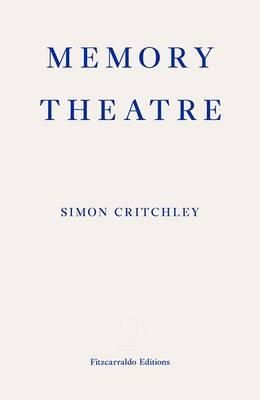Simon Critchley is Hans Jonas Professor of Philosophy at the New School for Social Research in New York. His previous books include On Humour, The Book of Dead Philosophers, How to Stop Living and Start Worrying, Impossible Objects, The Mattering of Matter (with Tom McCarthy), The Faith of the Faithless, Stay, Illusion!: The Hamlet Doctrine (with Jamieson Webster), Bowie, and Notes on Suicide (also published by Fitzcarraldo Editions). He is series moderator of ‘The Stone’, a philosophy column in the New York Times, to which he is a frequent contributor.
‘Memory Theatre is a brilliant one-of-a-kind mind game occupying a strange frontier between philosophy, memoir and fiction. Simon Critchley beguiles as he illuminates.’ — David Mitchell, author of Cloud Atlas ‘With a sense of mischief combined with surprising reverie, Simon Critchley has braided together ideas about memory from the past with the latest thinking about unreliable narrative, altered states and the mysteries of consciousness. Memory Theatre is a tantalising, textual Moebius strip – philosophy, autobiography and fiction twisted together.’ — Marina Warner, author of Stranger Magic ‘Simon Critchley is a figure of quite startling brilliance, and I can never begin to guess what he’ll do next, only that it is sure to sustain and nourish my appetite for his voice. His overall project may be that of returning philosophical inquiry, and “theory”, to a home in literature, yet without surrendering any of its incisive power, or ethical urgency. ... I read Memory Theatre and loved it.’ — Jonathan Lethem, author of Dissident Gardens ‘Novella or essay, science-fiction or memoir? Who cares. Chris Marker, Adolfo Bioy Casares and Frances Yates would all have been proud to have written Memory Theatre.’ — Tom McCarthy, author of C ‘A strange, affecting and stimulating book that’s both a philosophical history and a personal memoir. Sifting through the archives of a dead friend, Critchley takes a fascinating journey through the philosophy and history of memory, and the technologies of remembering dreamed up by thinkers since classical times.’ — Hari Kunzru, author of Gods Without Men ‘This is a remarkable [fiction] debut: rich, profound and clever, but not oppressively so, and often very funny.’ — Nicholas Lezard, Guardian


